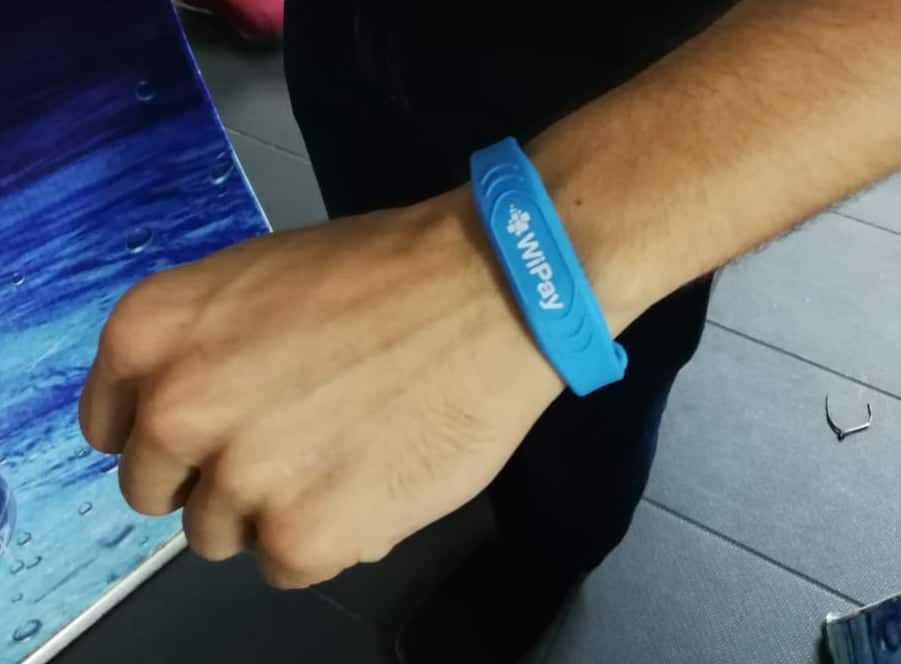
Above: The new WiPay e-payment bracelet. Photo by Taran Rampersad.
You’re at Maracas Bay, trudging back and forth to your car to get your shark and bake. You could be wearing a WiPay bracelet, simply waving it at the merchant’s hardware to get your eats. Or somewhere in Tobago… Or this upcoming Carnival, so you don’t have to carry a wallet.
It’s pretty exciting to consider the possibilities, and I’m not easily excited.
The launch of WiPay (pronounced We-Pay) on October 17, proved a success with lots of people attending. The follow up, today, was more slow – but a few lucky kids got some WiPay bracelets with $300 TT on them.
The concept is simple enough. A business owner can get the hardware that allows them to collect payments, and the consumer simply goes to a WiPay top up location – NLCB locations – and loads up their account with cash, which can be used with their phone, or the wristband, or even on their computer at home when paying a WiPay Merchant.
Massy Stores has already begun limited use of WiPay. Gas Stations, too, have started, and there’s even an app for the quintessential doubles man that was shown. Anyone who sells anything locally can participate – and there’s solid technology behind it that is recognized for its security: blockchain.
Given the present climate of crime in this country, and given the limitations of what the banks make available, WiPay fills a void in the market that allows for some true business innovation. It’s hard to rob a doubles man when there’s no cash.
It’s something practical and simple that works. Check out WiPay if you haven’t yet – it doesn’t handle foreign purchases yet with foreign exchange, but rumor has it that’s on their path. For now, the local market is a brilliant start – from tourism to groceries to your everyday doubles fix.
Taran Rampersad has over three decades of experience working with technology, the majority of which was as a software engineer.
He is a published author on virtual worlds and was part of the team of writers at WorldChanging.com that won the Utne Award.
He is an outspoken advocate of simplifying processes and bending technology’s use to society’s needs.
His volunteer work related to technology and disasters has been mentioned by the media (BBC), and is one of the plank-owners of combining culture with ICT in the Caribbean (ICT) through CARDICIS and has volunteered time towards those ends.
As an amateur photographer, he has been published in educational books, magazines, websites and NASA’s ‘Sensing The Planet’.
These days, he’s focusing more on his writing and technology experiments. Feel free to contact him through Facebook Messenger.



How does this integrate when ApplePay and GoogleWallet when foreigners come for Carnival?
If a bandit steals it… can they use it?